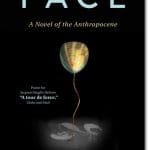If women desire to be leaders, they should choose to become leaders and invest themselves in the process, according to Nerve.
The book follows a standard format of introducing a stage or a difficulty in a professional or personal manner. It’s viewed from different aspects, such as the pros and cons and other considerations, before both authors weigh in. They describe their own experiences with a situation, such as achieving mentorship or becoming a mother, and what helped them to achieve better results or pitfalls along the way.
Among some of the best ways to achieve becoming a leader, as Piper and Samarasekera note, is to have an excellent support system and have backups in case your plans fall through as well as a sense of adaptability. Both authors also share a safety net in the form of ample financial means from family members, which influences their successes. Their families expected and supported them in furthering their education. It was a given for them both to seek out and attend higher education, something if they had gone without would have limited them immensely in their leadership successes.
One of the primary aspects that hold women back from succeeding, the authors note, is the sense that they must be perfect at everything they do. There is a strong sense that women cannot allow themselves to fail and that limits them more than men.
I was disappointed to note that despite being a book intended to teach women how to become leaders, the content itself was not specifically intersectional. There is no acknowledgement of the privilege both authors were so lucky to be born with, and how that privilege would dramatically shape their careers and the opportunities available to them. There is also a tendency to stick to a gender binary despite the acknowledgement by both authors that there are more options than man and woman.
There was no use of the word “patriarchy” in this book, however, there were frequent tongue-in-cheek references to the term throughout the text. I found that confusing since there were still immediate, although watered-down comparisons to what men were able to accomplish (having a career and children for one thing) and women were still behind on.
This book is written in a chronological timeline, beginning from the childhood of the authors and moving forward from there. In considering the target audience and the sincere personality which imbued the text beginning in the later years, I would argue readers would be more enthralled and stay engaged with the material if they began from when they became leaders and looked back in hindsight. No one can change their childhood after all, as it’s already happened.
One shortcoming in this book would definitely be the out-of-date, skewed, self-reported statistics research the business world conducts. There were many articles referenced within the text which, because they focus primarily on how women and men perform in the workplace, are decades out of date. The authors do their determined best to either refute or encourage by personal experience any of these data sets.
The advice offered by writers becomes quite wholesome and effective in the ‘what could possibly go wrong?” chapter. The public persona and balance chapters are full of sound advice and real-life application for frankly anyone.
On the whole, this book may have been better as a memoir-specific book as opposed to a guide for the up-and-comers. Both women have led interesting lives in their own rights which would be fascinating to read.
Martha Piper served as the first woman president of the University of British Columbia and has been a director of the Bank of Montreal, Shoppers Drug Mart, and TransAlta Corporation. An Officer of the Order of Canada, she was born in Lorain, Ohio, and lives with her husband, William Piper, in Vancouver, British Columbia.
Indira Samarasekera served as the first woman president of the University of Alberta and is a director of Magna International, TC Energy, Intact Financial Corporation, and Stelco and has served as a director of the Bank of Nova Scotia. An Officer of the Order of Canada, she was born in Colombo, Sri Lanka, and lives in Vancouver, British Columbia.
- Publisher : ECW Press (Oct. 4 2022)
- Language : English
- Paperback : 320 pages
- ISBN-10 : 1770416730
- ISBN-13 : 978-1770416734
Stephanie Sirois (they/them) is a writer, artist and journalist on unceded Wolastoqiyik territory. They spend their time reading, writing, making art and exhorting their family into playing board games with them.










